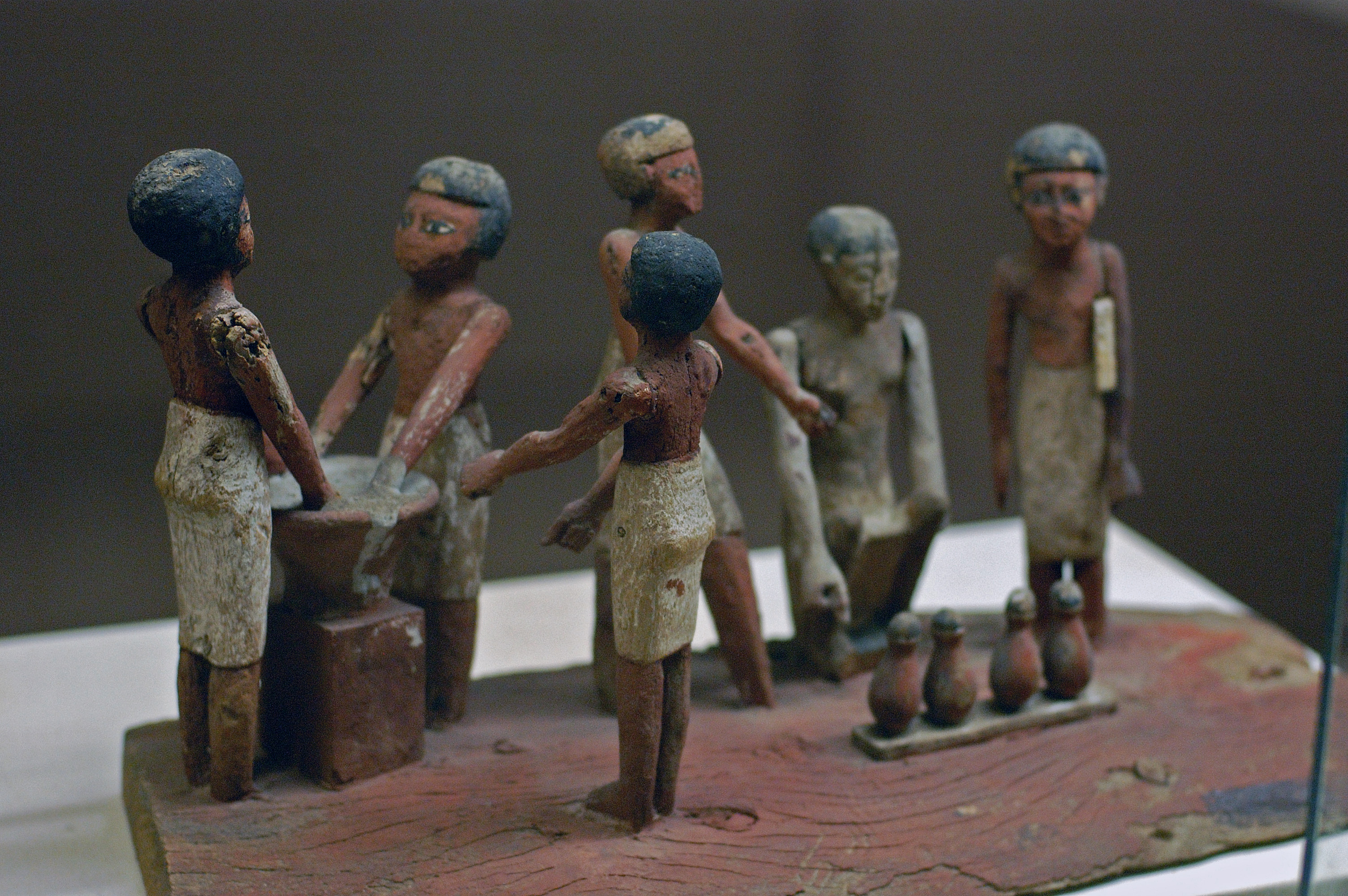Last year, I mentioned that eating well is one of things that makes life worth living!
This week, I wanted to take a look at the other side of cuisine and give a shout out to one of the oldest and most widely loved beverages of all time, Beer:
This week, I wanted to take a look at the other side of cuisine and give a shout out to one of the oldest and most widely loved beverages of all time, Beer:
Beer is the third most popular drink in the world after water and tea. And whether one calls this liquid awesomeness a cold one, a brewskie, or real man's Zima, people have been enjoying beer for a long, long time. For example, during the building of the Great Pyramids of Giza, each worker got a daily ration of four to five liters of beer, serving as both nutrition and refreshment that was crucial to the Pyramids' construction.
Related to the invention of bread (it is theorized that beer-like beverages were independently developed throughout the world soon after a tribe or culture had domesticated cereal), beer has been arguably partly responsible for humanity's ability to develop technology and build civilization. Unsurprisingly, the Code of Hammurabi included laws regulating beer and beer parlors.
Fermentation is one of the earliest chemical processes mastered by humanity. Barley brewed beer has been around since at least 3100 BC, as per archaeological evidence (ancient pottery jars) from Godin Tepe in the Zagros Mountains of modern day western Iran.
The oldest surviving beer recipe is the "Hymn to Ninkasi," the Sumerian goddess of brewing:
"Given birth by the flowing water ......, tenderly cared for by Ninhursaja! Ninkasi, given birth by the flowing water ......, tenderly cared for by Ninhursaja!
Having founded your town upon wax, she completed its great walls for you. Ninkasi, having founded your town upon wax, she completed its great walls for you.
Your father is Enki, the lord Nudimmud, and your mother is Ninti, the queen of the abzu. Ninkasi, your father is Enki, the lord Nudimmud, and your mother is Ninti, the queen of the abzu.
It is you who handle the ...... and dough with a big shovel, mixing, in a pit, the beerbread with sweet aromatics. Ninkasi, it is you who handle the ...... and dough with a big shovel, mixing, in a pit, the beerbread with sweet aromatics.
It is you who bake the beerbread in the big oven, and put in order the piles of hulled grain. Ninkasi, it is you who bake the beerbread in the big oven, and put in order the piles of hulled grain.
It is you who water the earth-covered malt; the noble dogs guard it even from the potentates (?). Ninkasi, it is you who water the earth-covered malt; the noble dogs guard it even from the potentates (?).
It is you who soak the malt in a jar; the waves rise, the waves fall. Ninkasi, it is you who soak the malt in a jar; the waves rise, the waves fall.
It is you who spread the cooked mash on large reed mats; coolness overcomes ....... Ninkasi, it is you who spread the cooked mash on large reed mats; coolness overcomes .......
It is you who hold with both hands the great sweetwort, brewing it with honey and wine. Ninkasi, it is you who hold with both hands the great sweetwort, brewing it with honey and wine.
[1 line damaged]
You ...... the sweetwort to the vessel. Ninkasi, ....... You ...... the sweetwort to the vessel.
You place the fermenting vat, which makes a pleasant sound, appropriately on top of a large collector vat. Ninkasi, you place the fermenting vat, which makes a pleasant sound, appropriately on top of a large collector vat.
It is you who pour out the filtered beer of the collector vat; it is like the onrush of the Tigris and the Euphrates. Ninkasi, it is you who pour out the filtered beer of the collector vat; it is like the onrush of the Tigris and the Euphrates."
As befits the followers of Ninkasi, many ancient beer meisters in Mesopotamia were women, and making beer was one of the few trades open women at the time. This is a reflection of the responsibility that women had to supply both bread and beer to the household.
In contrast with today's brews, ancient beers were often thick, more of a gruel than a beverage, and sometimes early beer drinkers used straws to avoid the bitter solids left over from fermentation. In addition, some beers contained ingredients that would be unusual to modern beer drinkers, such as berries, honey and narcotic herbs!
But perhaps the biggest difference between ancient beers and modern beers is the latter's use of hops, which started in Germany in the 9th century. Germany, of course, is home to the most epic of beer festivals, Oktoberfest, which has been held annually for over two centuries!
So, whether you are drinking craft brew or your favorite commercial megabrand, remember that you are doing your own small part to further civilization. Cheers!


No comments:
Post a Comment